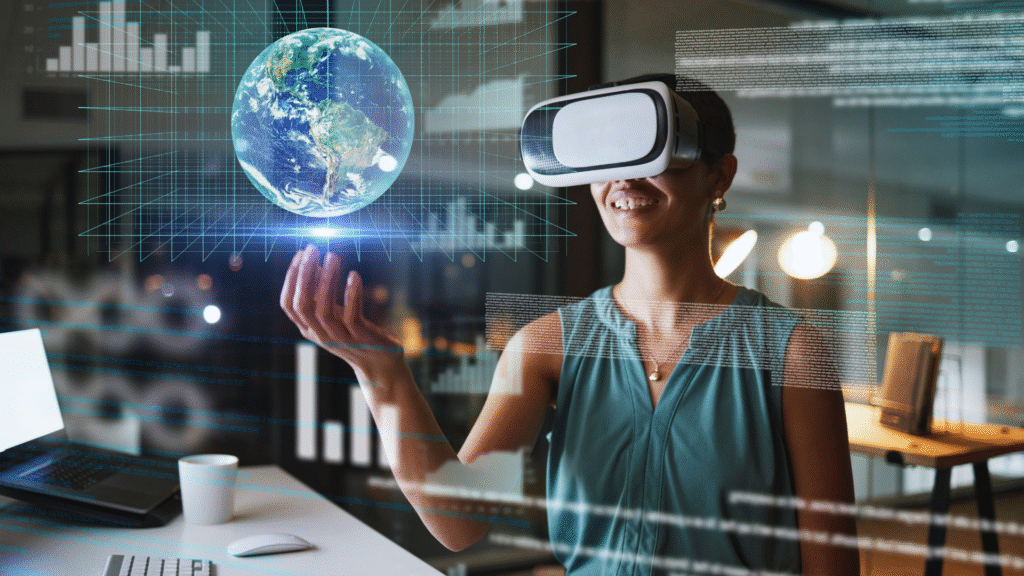The landscape of personal computing is set to undergo significant transformations in the coming years. Advancements in artificial intelligence, cloud computing, and quantum technology will redefine how individuals interact with their devices. These innovations promise to enhance efficiency, increase accessibility, and provide a more personalized user experience.
As computing power becomes more integrated into everyday objects, the concept of personal computing will expand beyond traditional desktops and laptops. Smart devices will increasingly play a central role, enabling seamless connectivity and smart home integrations. This shift will change not only how people work and play but also how they manage their daily lives.
The anticipated growth of virtual and augmented reality will further shape personal computing experiences. Users can expect a greater immersion in digital environments, offering new ways to collaborate, learn, and engage with content. The future of personal computing will not just be about hardware, but also how these tools enhance the human experience.
Emerging Technologies Redefining Personal Computing
The landscape of personal computing is undergoing rapid transformation, driven by advancements in artificial intelligence, immersive technologies, and robotics. These innovations are reshaping how individuals interact with devices, enhancing capabilities and user experiences.
Artificial Intelligence and Generative AI
Artificial Intelligence (AI) is revolutionizing personal computing by enhancing productivity and user experience. Generative AI, particularly, enables systems to produce content, automate tasks, and assist users in complex problem-solving.
With AI PCs equipped with Neural Processing Units (NPUs), devices can perform real-time data analysis and personalized recommendations. Companies like Qualcomm and NVIDIA are at the forefront, embedding AI in hardware for improved efficiency.
Copilot+ PCs further illustrate AI’s potential by offering intelligent assistance, adapting to user behavior and preferences. This level of integration allows for smoother workflows and heightened creativity.
The Evolution of Virtual and Augmented Reality
Virtual Reality (VR) and Augmented Reality (AR) technologies are redefining personal computing interfaces. These immersive experiences allow users to interact with digital elements in a more intuitive manner.
AR applications overlay virtual information on the real world, enhancing tasks such as navigation and learning. Leading companies are developing devices that seamlessly integrate AR into everyday tasks, making them invaluable for personal and professional use.
VR offers virtual environments for gaming, training, and social interactions. As hardware accelerates in capability, the boundaries of possible applications in work and play continue to expand.
Integration of Robotics and Automation
Robotics and automation are becoming integral to personal computing environments. Smart devices equipped with robotic functionalities streamline everyday tasks, enhancing user convenience.
Home assistants and automated systems can manage chores and optimize routines. The synergy between AI and robotics enables these devices to learn user preferences and adapt accordingly.
Emerging services in this space focus on collaborative robots that assist in workplace settings, enhancing productivity. As robotics technology advances, the integration with personal computing will facilitate unprecedented levels of automation and efficiency in daily life.
Quantum Computing: Unlocking New Possibilities
Quantum computing represents a significant shift in computing technology. By utilizing the principles of quantum mechanics, it leverages qubits to perform calculations at speeds unattainable by classical computers. This has implications for various fields, including optimization and drug discovery.
Fundamentals of Quantum Computing
Quantum computing uses qubits, which differ from traditional bits. While a bit represents either a 0 or a 1, a qubit can exist in multiple states simultaneously due to superposition. This allows quantum computers to process vast amounts of information quickly.
Another key principle is entanglement, where qubits become interconnected, meaning the state of one qubit can depend on another, regardless of distance. This property enhances computational power. For example, quantum algorithms can significantly speed up certain calculations, such as factoring large numbers and simulating molecular structures.
Quantum Applications in Optimization and Drug Discovery
Quantum computing has the potential to revolutionize optimization problems. Industries ranging from logistics to finance could benefit from algorithms that find optimal solutions faster than classical methods. Quantum annealing, a form of quantum computing, specifically excels at solving complex optimization tasks.
In drug discovery, quantum computing enables researchers to simulate molecular interactions more accurately. This can drastically reduce the time required to identify promising drug candidates. By predicting how molecules behave, quantum systems can lead to more effective therapies tailored to specific diseases, streamlining the development process.
The Future Impact and Challenges of Computing Advancements
As computing technology evolves, its implications for various industries and its environmental impact become increasingly significant. The intersection of digital transformation and sustainability poses unique challenges and opportunities moving forward.
Digital Transformation Across Industries
Digital computing drives transformation across sectors like healthcare, finance, and education. Organizations leverage advanced technologies such as artificial intelligence, machine learning, and cloud computing to enhance efficiency and productivity.
For instance, in healthcare, telemedicine and data analytics improve patient care. In finance, blockchain technology increases security and transparency. The education sector benefits from personalized learning experiences facilitated by data-driven insights.
By adopting these technologies, industries can streamline operations and create new service models. This shift fosters innovation but demands significant investments in infrastructure and training.
Sustainability and Climate Change Considerations
Computing advancements also raise concerns regarding their sustainability and impact on climate change. Increasing reliance on data centers contributes to higher energy consumption, prompting a need for greener practices.
Organizations are exploring energy-efficient solutions like renewable energy sources and advanced cooling systems. Additionally, the push for sustainable computing practices, such as decentralized computing and eco-friendly hardware, is crucial.
The challenge lies in balancing technological growth with environmental responsibility. Stakeholders must collaborate to develop strategies that minimize the carbon footprint while maximizing the benefits of digital transformation.

